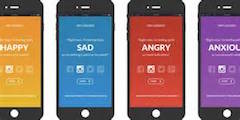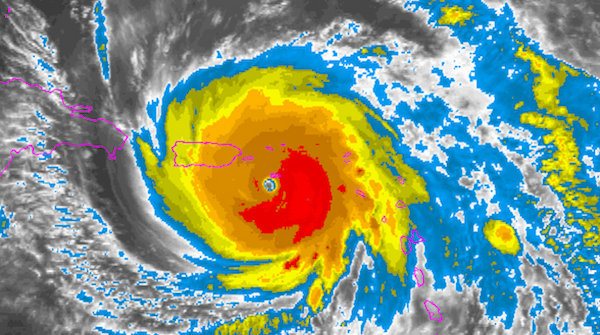mental illness
See the following -
40 Years Later, The Cruelty Of Papillon Is A Reality In U.S. Prisons
Two generations after the famous film about solitary confinement first appeared, it's still relevant to the deplorable treatment of inmates in America's prisons today. Read More »
- Login to post comments
App Aims to Conduct the World’s Largest Mental Health Study, Reduce Suicides
 A project called How is the world feeling? is aiming to use an iOS and Android app to conduct the world’s largest study of mental health over a one-week period starting on October 10. The aim is to gather data from ordinary people to identify patterns in emotions, then to open-source anonymized data to mental health professionals in a bid to devise approaches to reducing suicide rates...
A project called How is the world feeling? is aiming to use an iOS and Android app to conduct the world’s largest study of mental health over a one-week period starting on October 10. The aim is to gather data from ordinary people to identify patterns in emotions, then to open-source anonymized data to mental health professionals in a bid to devise approaches to reducing suicide rates...
- Login to post comments
Can Smartphone Apps and EHRs Transform Mental Health Care?
 Our relationship with technology is not unidirectional. We use it, and it changes us. But it cannot alter fundamental realities regardless of how hopeful Americans are or how much faith we have in it. More and better technology is not a substitute for adequate funding and coordinated planning, especially when we’re talking about the very significant funding issues around behavioral health. Sure, we can get excited about the newest app and the latest EHR functionality, but we must also maintain a focus on meeting the needs of the mental health professionals committed to keeping our fellow citizens from falling through the cracks. Even while there is no magic in technology, there is also no reason to believe we can’t fix a broken mental health system through hard work, empathy and thoughtful planning. Time and again, our faith in those principles has been rewarded.
Our relationship with technology is not unidirectional. We use it, and it changes us. But it cannot alter fundamental realities regardless of how hopeful Americans are or how much faith we have in it. More and better technology is not a substitute for adequate funding and coordinated planning, especially when we’re talking about the very significant funding issues around behavioral health. Sure, we can get excited about the newest app and the latest EHR functionality, but we must also maintain a focus on meeting the needs of the mental health professionals committed to keeping our fellow citizens from falling through the cracks. Even while there is no magic in technology, there is also no reason to believe we can’t fix a broken mental health system through hard work, empathy and thoughtful planning. Time and again, our faith in those principles has been rewarded.
- Login to post comments
Government Survey Finds That 5 Percent of Americans Suffer from a 'Serious Mental Illness'
About 20 percent of American adults suffer some sort of mental illness each year, and about 5 percent experience a serious disorder that disrupts work, family or social life, according to a government report released Thursday. The annual National Survey on Drug Use and Health sketches a now-familiar picture of a country where mental illness is common and the demand for treatment high. Read More »
- Login to post comments
GWU Milken Institute School of Public Health releases report on deaths due to Hurricane Maria in Puerto Rico and outlines steps to protect the most vulnerable communities from disasters
 In an independent report published today, researchers at the George Washington University Milken Institute School of Public Health (GW Milken Institute SPH) estimated there were 2,975 excess deaths in Puerto Rico due to Hurricane Maria from September 2017 through the end of February 2018. The researchers also identified gaps in the death certification and public communication processes and went on to make recommendations that will help prepare Puerto Rico for future hurricanes and other natural disasters.
In an independent report published today, researchers at the George Washington University Milken Institute School of Public Health (GW Milken Institute SPH) estimated there were 2,975 excess deaths in Puerto Rico due to Hurricane Maria from September 2017 through the end of February 2018. The researchers also identified gaps in the death certification and public communication processes and went on to make recommendations that will help prepare Puerto Rico for future hurricanes and other natural disasters.
- Login to post comments
How Do We Balance Civil Liberties With Treatment Of The Mentally Ill?
 In January of this year, political analyst Norman Ornstein lost his 34-year-old son, Matthew, to accidental carbon monoxide poisoning. While Matthew’s death was a tragic blow to family and friends, it was not the kind of out-of-the-blue shock that comes with absolutely no forewarning. Matthew, as Ornstein says in a New York Times op-ed published last month, had struggled with mental illness for 10 years, which contributed to poor decision making and his untimely death. A resident scholar with the American Enterprise Institute and writer for The Atlantic and Washington Post, Ornstein says that perhaps the most difficult aspect of Matthew’s death was the inability of family and friends to help treat Matthew’s mental health challenges after he had his initial psychotic break.
In January of this year, political analyst Norman Ornstein lost his 34-year-old son, Matthew, to accidental carbon monoxide poisoning. While Matthew’s death was a tragic blow to family and friends, it was not the kind of out-of-the-blue shock that comes with absolutely no forewarning. Matthew, as Ornstein says in a New York Times op-ed published last month, had struggled with mental illness for 10 years, which contributed to poor decision making and his untimely death. A resident scholar with the American Enterprise Institute and writer for The Atlantic and Washington Post, Ornstein says that perhaps the most difficult aspect of Matthew’s death was the inability of family and friends to help treat Matthew’s mental health challenges after he had his initial psychotic break.
- Login to post comments
One Of The Darkest Periods In The History Of American Prisons
Recent lawsuits and Justice Department investigations have uncovered grotesque abuses of mentally ill inmates at state and local prisons. Yet Washington refuses to investigate allegations of similar mistreatment at federal penitentiaries. Read More »
- Login to post comments
Spying on Mental Health Records is a Dangerous Idea
Australia’s Prime Minister Malcolm Turnbull just made a surprising announcement: the Government is considering accessing the mental health records of Australians suspected of terrorist activity. This is supposed to be a way of preventing so-called “lone wolf” attacks — such as in Nice, or Orlando— because apparently these horrific acts are primarily the result of mental health issues. So why do I feel like our society just got that much more unsafe with this announcement?...
- Login to post comments
The Junk Science Behind Michael Savage's Attacks On Military Troops With PTSD
Last week, Michael Savage leveled his latest in a long string of attacks on Americans with mental illness and the medical community that works to help them. After a veteran caller with Posttraumatic Stress Disorder (PTSD) expressed support for the city of San Francisco naming a bridge after the late Robin Williams, the right-wing radio host announced that he is "so sick and tired of everyone with their complaints about PTSD, depression," asserting that it's a sign of a "weak, sick, broken nation."...
- Login to post comments
The Patient Is Mentally Ill. Why Are We Only Treating His Broken Hand?
 Nationwide, the patchwork nature of mental health care—most mental health hospitals lack electronic health records (EHRs)—drives up overall health care costs primarily through expensive emergency department (ED) visits by people who present with apparent mental health challenges. Of course, the disparity between mental and acute health care in the United States is caused by far more than a lack of EHRs in behavioral health settings. But more information enables better care and helps control costs, making it a necessary component in reforming the health care system.
Nationwide, the patchwork nature of mental health care—most mental health hospitals lack electronic health records (EHRs)—drives up overall health care costs primarily through expensive emergency department (ED) visits by people who present with apparent mental health challenges. Of course, the disparity between mental and acute health care in the United States is caused by far more than a lack of EHRs in behavioral health settings. But more information enables better care and helps control costs, making it a necessary component in reforming the health care system.
- Login to post comments
What Puerto Rico’s Death Toll from Hurricane Maria Really Tells Us
 The recently released report from the Milken Institute is perhaps the strongest rebuke to date on the impact of Hurricane Maria during the 2017 hurricane season. The report notes nearly 3,000 people have died in Puerto Rico because of the storm. These numbers provide a more accurate depiction of the devastation and lives lost in Puerto Rico. While sad and troubling, it is important to call out that these updated numbers do not even account for the death toll in the U.S. Virgin Islands.
The recently released report from the Milken Institute is perhaps the strongest rebuke to date on the impact of Hurricane Maria during the 2017 hurricane season. The report notes nearly 3,000 people have died in Puerto Rico because of the storm. These numbers provide a more accurate depiction of the devastation and lives lost in Puerto Rico. While sad and troubling, it is important to call out that these updated numbers do not even account for the death toll in the U.S. Virgin Islands.
- Login to post comments